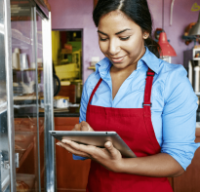New food ventures are cropping up all the time, but not all of them are destined for success. Sometimes, it doesn't matter how popular your product is; if you don't start your business with a solid foundation, you will struggle to keep your business afloat.
In this guide, we are exploring the steps you'll need to take to establish a successful food business, ensuring that you can grow and scale your business when the time is right.
Find your niche
The key to most successful food businesses is to find an untapped niche. Offering something unique that no one else is offering - or bringing something unique to a new location - is one of the best ways to set yourself up for success. Instead of copying another food business, create something unique. It's far better to be a leader than a follower in the food industry.
Write a business plan
A business plan will keep you grounded and ensure that you stay on track. It will also help you to research the sector and make sure you aren't missing out on any easy wins and key opportunities. Writing a business plan isn't only about securing investment; it's about making sure you have fully realised your business plan in your mind before you move forward.
Check local regulations
It's important that your business remains compliant with any local regulations, and that you are fully aware of the food hygiene requirements. You might need additional training to prove that you have the skills and knowledge to store, prepare and serve food safely. This can also have implications for your insurance coverage, so it's vital that you don't skip any steps when it comes to compliance.
Choose a location
There are many ways to start a food business, and some of them don't require you to have a physical location. The options available to you include:
● A food delivery service, such as meal prep or smoothie deliveries
● A mobile food truck, which you could take to festivals or other events
● A pop up food service offering a limited menu for kitchen takeovers
● A restaurant or cafe with a fixed location
As you can see, there are simple ways you can start a food business with a physical location, which can help to keep costs down in the beginning. As your business grows, you can scale up your offering by increasing your catchment area, or establishing multiple locations. You could also explore franchising options as a way to expand your reach.
Invest in quality equipment
Anything that you purchase for your business should be seen as an investment, not an expense. But this doesn't mean that you should be frivolous with your spending. Think carefully about what you need to buy new and what you can buy used.
An example of this would be using fridge vans to transport food stock. A new van will be more efficient, but this might be too large of an investment to make in the beginning, so you might instead choose to buy a used van.
You should also speak to a tax planner to help you understand which purchases can help to reduce your tax liability.
Plan your launch
A launch event will help you to quickly build your audience and gather feedback on your offering. Think about offering free samples of your food, or finding another way to make it more attractive for customers to take a chance on an unknown food business.
Social media will be your friend when it comes to marketing your food business. Think about how you can use photography as effectively as possible to get people excited about your food before they've even had a chance to taste it.
Scale your offering
Once you have established your business, you should start to think about how you will take it to the next level and expand your offering. Scaling your business is the best way to make sure you keep enjoying continual growth and stay one step ahead of the competition. If you stay in one place, you might find that your competitors can swoop in and replicate your offering and steal from your customer base.







